Publications
Man’s Better Angels:
Romantic Reformers and the Coming of the Civil War
Philip F. Gura
Belknap Press of Harvard University Press, 2017
The Life of William Apess, Pequot
Philip F. Gura
University of North Carolina Press, 2015
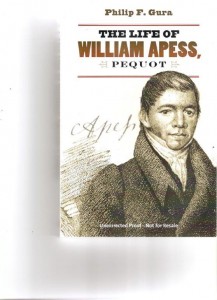
Truth’s Ragged Edge: The Rise of the American Novel
Philip F. Gura
Farrar, Straus and Giroux, 2013
Jonathan Edwards: Writings from the Great Awakening
ed. Philip F. Gura
Library of America, 2013
The American Antiquarian Society, 1812-2012: A Bicentennial History
Philip F. Gura
American Antiquarian Society, 2012
American Transcendentalism: A History
Philip F. Gura
Hill and Wang, 2007
Finalist, National Book Critics Circle Award (nonfiction)
Jonathan Edwards: America’s Evangelical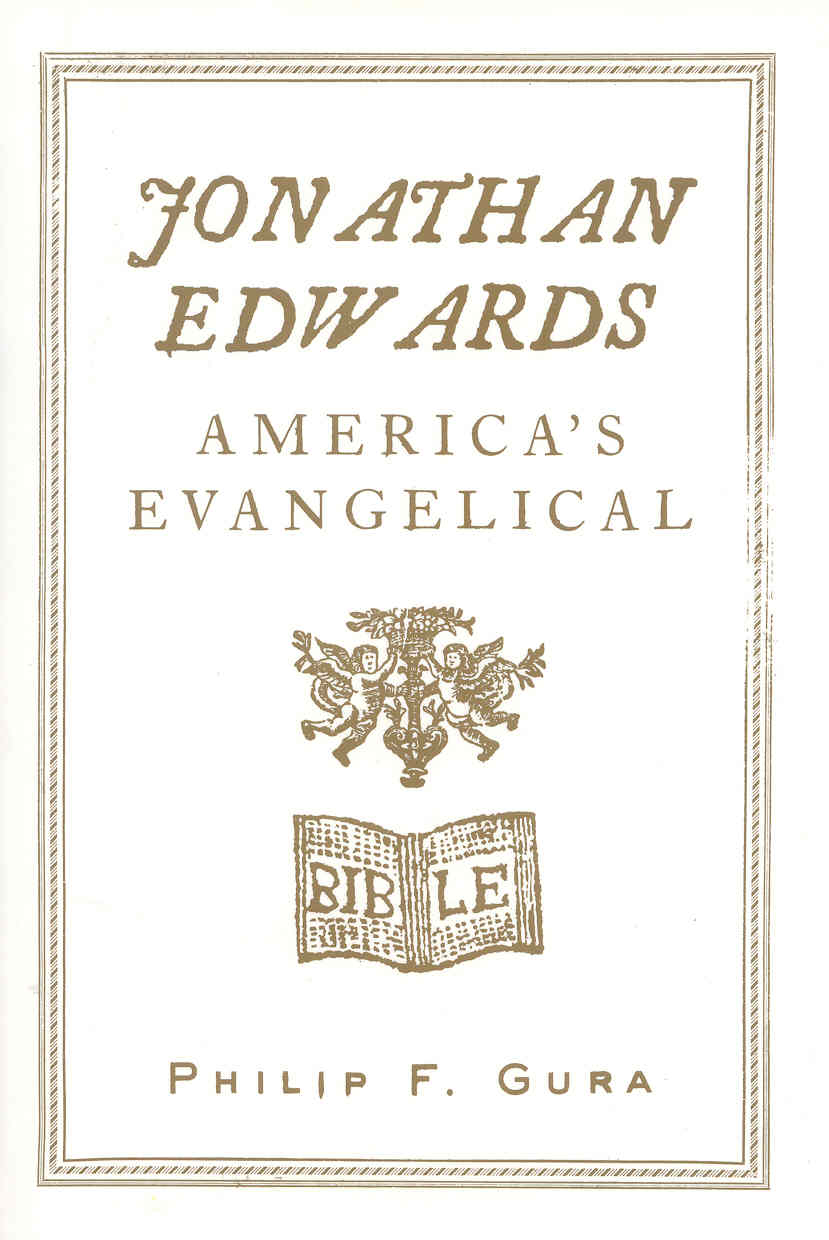
Philip F. Gura
Hill and Wang
2005
“A brilliant, concise, authoritative account of the life and mind of Jonathan Edwards that is so well written I found it impossible to put down.”
-Robert D. Richardson, Jr.
“A wonderfully compact but greatly insightful biography…. Promises to be a standard and enduring introduction to America’s most influential evangelical theologian for students at all levels…. A model for biographers.”
-Stephen J. Stein
“A well-informed and lucid portrait that touches on every major aspect of Edwards’ life.” -David D. Hall
C.F. Martin and His Guitars, 1796-1873 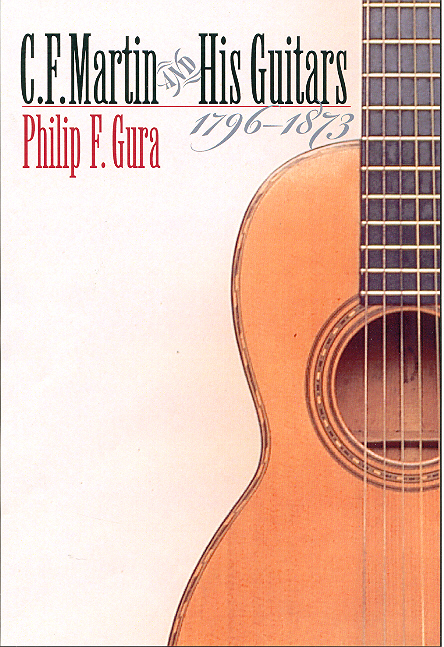
Philip F. Gura
University of North Carolina Press
2003
A chronicle of the career of C.F. Martin from his humble start as an importer of musical instruments in New York City in the 1830s through his move to Nazareth, Pennsylvania, and the founding of C.F. Martin & Co.
Gura is the first historian to study thoroughly the Martin company records dating back to the 1830s: letters, account books, inventories, and other documents.
Using this rich archive, he establishes how a German immigrant from Saxony’s guild tradition became the finest American guitar maker of his time and created a uniquely American business that eclipsed its competition.
Buried from the World: 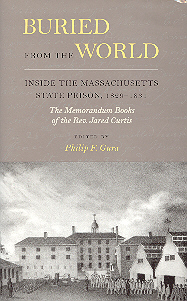
Inside the Massachusetts State Prison, 1829-1831,
The Memorandum Books of the Rev. Jared Curtis
Edited by Philip F. Gura
Massachusetts Historical Society
2001
Between 1829 and 1831, Jared Curtis, the newly appointed prison chaplain at the Massachusetts State Prison in Charlestown, interviewed every one of the over 300 inmates at the prison and recorded their biographies in two leather bound notebooks. Those notebooks, fully transcribed and well annotated after their discovery in 1998, form the basis of his book. Gura places the document in its historical context with a thorough and thoughtful introduction.
America’s Instrument 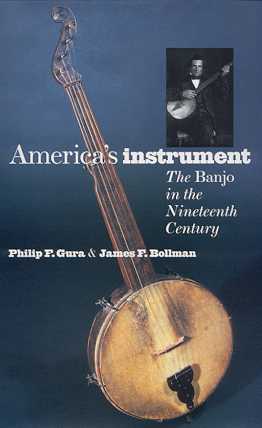
The Banjo in the Nineteenth Century
Philip F. Gura and James F. Bollman
University of North Carolina Press
1999
This handsome, richly illustrated history traces the transformation of the banjo from primitive folk instrument to sophisticated musical machine and, in the process, offers a unique view of the music business in nineteenth-century America.
Philip Gura and James Bollman chart the evolution of “America’s Instrument,” the five-stringed banjo, from its origins in the gourd instruments of enslaved Africans brought to the New World in the
seventeenth century through its rise to the very pinnacle of American popular culture at the turn of the twentieth century.
Throughout, they show how banjo craftsmen and manufacturers developed, built, and marked their products to an American public
immersed in the production and consumption of popular music.
With over 250 illustrations—including rare period photographs, minstrel broadsides, sheet music covers, and banjo tutors and tune books—America’s Instrument brings to life a fascinating aspect of American cultural history.
The Crossroads of American History and Literature
Philip F. Gura
Penn State University Press 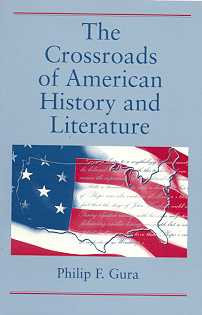
1996
The Crossroads of American History and Literature collects two decades’ worth of the best-known essays of Philip F. Gura.
Beginning with a definitive overview of studies of colonial literature, Gura ranges through such subjects in colonial American history as the intellectual life of the Connecticut River Valley,
Cotton Mather’s understanding of political leadership, and the religious upheavals of the Great Awakening.
In the nineteenth century, he visits such varied topics as the history of print culture in rural communities, the philological interests of the Transcendentalist Elizabeth Peabody, the craft and business of the early American music trades, and Thoreau’s interest in exploration literature and in the Native American.
Displaying remarkable sophistication in a variety of fields that, taken together, constitute the heart of American Studies, this collection illustrates the complexity of American cultural history.
A Glimpse of Sion’s Glory 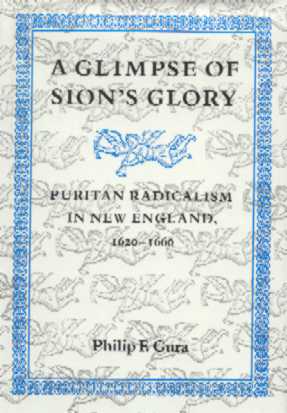
Puritan Radicalism in New England, 1620-1660
Philip F. Gura
Wesleyan University Press
1984
“A Glimpse of Sion’s Glory signals an important new direction in the study of American Puritanism… The presence of these dissenters in the colonies is not, of course, completely unknown, but never before have they been seen as a major shaping force for
seventeenth-century American Puritanism… This is a ground-breaking study… A Glimpse of Sion’s Glory is not only a substantial contribution and a notable achievement, it also takes a place on the short shelf of truly seminal studies of American Puritanism.”
-Robert D. Richardson, Jr., Reviews in American History
The Wisdom of Words
Language, Theology, and Literature in the New England Renaissance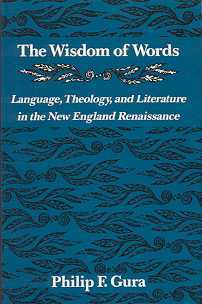
Philip F. Gura
Wesleyan University Press
1981
“This provocative work brings to light an important but neglected area of American intellectual history—the philosophy of language in the United States (specifically New England) during the decades
before the Civil War… Gura places the writings of Emerson, Thoreau, Hawthorne, and Melville within the context of a sustained theological debate over the authority of scriptural language…. The Wisdom of Words is a pioneering step in an important critical direction.”
-Michael Kramer, American Literature
Other Books
(co.ed.), The Norton Anthology of American Literature. Seventh Ed. (New York: W. W. Norton, 2012).
(ed.) Memoirs of Stephen Burroughs. Boston: Northeastern University Press, 1988.
(ed.) Critical Essays on American Transcendentalism (with Joel Myerson). Boston: Twayne Publishers, 1982.
Essays
“To the Curator of Birds,” New England Review (2016)
“From Edwards to Emerson, Revisited,” Journal of Unitarian Universalist History 38 (2014-2015), 1-17. f
“Son of the Forest: William Apess and the Fight for Indigenous Rights,” forthcoming, New England Review 35: 1 (2015), 72-81.
“Self-Consciousness and Sentimental Fiction,” New England Review, 33.4 (2013), 180-184.
“Puritan Origins,” in Blackwell’s Companion to American Studies, ed. John Carlos Rowe (London and New York: Blackwell’s, 2010), 19-35.
“Nature Writing,” in The Oxford Handbook to Transcendentalism, eds. Joel Myerson, Sandra Harbert Petrulionis, and Laura Dassow Walls ( New York: Oxford Univ. Press, 2010), 408-425.
“Straddling the Color Line: The Print Revolution and the Recording, Transmission, and Performance of American Vernacular Music,” in Sandra M. Gustafson and Caroline Sloat, eds., Cultural Narratives: Textuality and Performance in the United States before 1900 (Notre Dame, IN: University of Notre Dame Press, 2010), 240-254.
“The Transcendentalist Commotion, New England Review, 28: 3 (2007), 50-79.
“Jonathan Edwards and American Literature,” in Stephen Stein, ed., The Cambridge Companion to Jonathan Edwards ( New York: Cambridge Univ. Press, 2006),.
“Lost and Found: Recovering Edwards for American Literature,” in Kenneth Minkema, ed.,Edwards at 300 (forthcoming, Lanham, MD: Univ. Press of America, 2005), 86-97.
“Jonathan Edwards: The Forgotten Founding Father, History News Network, May 23, 1005 (http://hnn.us.articles/11820.html).
“How I Met and dated Miss Emily Dickinson, Common-Place, 4: 2 (January 2004) (www.common-place.org/vol-04/no-02/gura).
“Jonathan Edwards in American Literature,” Early American Literature, 39: 1 (2004), 147-66.
“My Everett Emerson,” Early American Literature, 38: 1 (2003), 3-5.
“Doubling the Pleasure: A Portfolio of Twins from the Collection of Leslie and Philip Gura,”The Daguerreian Annual, 2000 (Pittsburgh: The Daguerreian Society, 2001), 213-38.
“From Prospect to Prospect: Early American Literature at the New Century,” William and Mary Quarterly 57, no. 3 (July, 2000), 599-620.
“Southern Roots and Branches: Four Decades of the New Lost City Ramblers,” Southern Cultures; also appeared as
“Roots and Branches: Four Decades of the New Lost City Ramblers,” Old-Time Herald7, no 2 (Winter 1999/2000), 26-33, and 7, no. 3
(Spring 2000), 18-24. 77
“Beyond Transcendentalism: The Radical Individualism of William B. Greene,” in Conrad Wright and Charles Capper, eds. The Transient and Permanent in American Transcendentalism (Boston: Massachusetts Historical Society, 1999), 471-96.
“New Thoreau Family Daguerreotypes,” Thoreau Society Bulletin, no. 227 (Spring 1999), 1-2; and Daguerreian Society Newsletter, 11:1
(January/February 1999) 3-4.
“Samuel Gorton,” in John A.Garraty, ed., American National Biography (New York: Oxford University Press, 1999), 9: 314-15.
“The Literature of Colonial English Puritanism,” in Carla Mulford, ed., Teaching Early American Literature (New York: MLA, 1999), 143-54.
“Refiguring Scholarship: Twenty-Five Years of the American Antiquarian Society’s Fellowship Program.” Proceedings of the American
Antiquarian Society, 107, part II (1997), 279-300.
“The Widening Gyre: Out from Emerson,” in Wesley T. Mott and Robert Burkholder, eds.,Emersonian Circles: Empirical Revaluations of Vision, Influence, and Prospects(Rochester, N.Y.: University of Rochester Press, 1997), 261-269.
“‘A Wild, Rank Place’: Thoreau’s Cape Cod,” in Joel Myerson, ed. The Cambridge Companion to Henry David Thoreau (New York and London: Cambridge University Press, 1995), 142-151.
“Manufacturing Guitars for the American Parlor: James Ashborn’s Wolcottville, Connecticut, Factory, 1851-1856,” Proceedings of the
American Antiquarian Society, 104, part I (1994), 117-155.
Thinking Through Thoreau,” Gettysburg Review 7, no. 2 (Spring 1994), 325-32.
“Another Visit with an Old Friend: Samuel Gorton’s Commentary ‘On the Lord’s Prayer,'”Rhode Island History 54, no. 1 (November 1993), 120-27.
“Poe, Hawthorne, and One of Those ‘Scribbling Women,'” Gettysburg Review, 6, no. 1 (Winter, 1993), 38-45.
“Early 19th Century Printing in Rural Massachusetts: John Howe of Greenwich and Enfield, c. 1803-1845, with a Transcription of His
‘Printer’s Book,’ c. 1832,” Proceedings of the American Antiquarian Society, 101, part I (1991), 25-62.
“Turning Our World Upside Down: Reconceiving Early American Literature,” American Literature, 63, no. 1 (March 1991), 104-112.
“Some Thoughts on the Revival: Alan Jabbour and Old-Time Music,” Old-Time Herald, 2, no. 8 (May-July, 1991), 24-28, 48.
“The Real History of Men and Women: Edward Eggleston’s The Transit of Civilization (1901),” Reviews in American History, 17, no. 4
(December 1989), 639-647.
“Emerson, Thoreau, and Transcendentalism,” in James Woodress, ed., American Literary Scholarship, 1987 (Durham: Duke University
Press, 1989), 3-18.
“Emerson, Thoreau, and Transcendentalism,” in David Nordloh, ed., American Literary Scholarship, 1986, (Durham: Duke University
Press, 1988), 3-22.
“Theodore Parker and the South Boston Ordination: The Textual Tangle of A Discourse on the Transient and Permanent in Christianity,” Studies in the American Renaissance, 1988 (Charlottesville: Univ. of Virginia Press, 1988), 149-178.
“Going Mr. Stoddard’s Way: William Williams on Church Privileges, 1693,” William and Mary Quarterly, 45, no. 3 (July 1988), 489-498.
“The Study of Colonial American Literature, 1966-1987: A Vade Mecum,” William and Mary Quarterly, 45, no. 2 (April 1988), 305-341,
350-351.
“Emerson, Thoreau, and Transcendentalism,” in J. Albert Robbins, ed. American Literary Scholarship, 1985 (Durham: Duke University
Press, 1987), 3-24.
“The View from Quabbin Hill,” New England Quarterly, 60, no. 1 (March 1987), 92-106.
“Emerson, Thoreau, and Transcendentalism,” in J. Albert Robbins, ed. American Literary Scholarship, 1984 (Durham: Duke University
Press, 1986), 3-26.
“Solomon Stoddard’s Irreverent Way,” Early American Literature 21, no. 1 (Spring 1986), 29-43.
“Preparing the Way for Stoddard: Eleazer Mather’s Serious Exhortation to Northampton,”New England Quarterly, 57, no. 2 (June, 1984), 240-249.
“Charles Chauncy,” “Samuel Gorton,” “Jonathan Mayhew,” “Urian Oakes,” “Solomon Stoddard,” in James A. Levernier and Douglas
Wilmes, eds., American Writers Before 1800: A Biographical and Critical Dictionary(Westport, CT: Greenwood Press, 1983), 303-306,
664-666, 996-998, 1097-1098, 1389-1392.
“Samuel Gorton and Religious Radicalism in England, 1644-1648,” William and Mary Quarterly, 3rd Ser., 40, no. 1 (January 1983), 121-124.
“‘The Contagion of Corrupt Opinions’ in Puritan Massachusetts: The Case of William Pynchon,” William and Mary Quarterly, 2rd Ser., 39, no. 3 (July 1982), 469-491.
“Parsons Cooke and Ware Factory Village: A New Missionary Field,” New England Historical and Genealogical Register, 135 (July 1981), 199-212.
“Language and Meaning: An American Tradition,” American Literature, 53, no. 1 (March 1981), 1-21.
“The Transcendentalists and Language: The Unitarian Exegetical Background,” in Joel Myerson, ed., Studies in the American Renaissance, 1979 (Boston: Twayne Publishers, 1979), 1-16.
“Henry Thoreau and the Wisdom of Words,” New England Quarterly, 52, no. 1 (March 1979), 38-54.
“The Radical Ideology of Samuel Gorton: New Light on the Relation of English to American Puritanism,” William and Mary Quarterly,
3rd Ser., 36, no. 1 (January 1979), 78-100.
“Sowing for the Harvest: William Williams and the Great Awakening,” Journal of Presbyterian History, 56, no. 4 (Winter 1978), 326-341.
“Thoreau’s Maine Woods Indians: More Representative Men,” American Literature, 49, no. 3 (November 1977), 366-384. Reprinted, Harold Bloom, ed., Henry David Thoreau: Modern Critical Views (New York: Chelsea House, 1987), 63-78.
“‘A Vice with the Vizard of Vertue Upon It’: Cotton Mather’s Life of Phips,” New England Quarterly, 50, no. 3 (September 1977), 440-457.
“Elizabeth Peabody and the Philosophy of Language,” ESQ: A Journal of the American Renaissance, 23, 3rd qtr. (July 1977), 154-163.
“Thoreau and John Josselyn,” New England Quarterly, 48, no. 4 (December 1975), 505-518.
Essay Reviews
“Hearing, Writing, Reading God’s Word,” Reviews on American History, 42.4 (December 2014), 590-594.
“Industrious, Ingenious Artisans,” Reviews in American History, 39.4 (December 2011), 587-593.
“American Primer: Religion in Early American Studies,” Early American Literature, 44.1 (January 2009).
“Jonathan Edwards in American Literature,” Early American Literature 39 (2004), 147-67.
“The Great Awakening as a Textual Event,” Reviews in American History 28 (March 2000), 23-29.
“America’s Minstrel Daze,” New England Quarterly 72, no. 4 (December 1999), 602-16.
“Making America’s Destiny Manifest,” Reviews in American History 27 (December 1999), 554-559..
“‘Power’ in Puritan Massachusetts,” Reviews in American History 26 (December 1998), 644-49.
“Essaying Antebellum Prose,” Reviews in American History 24(March, 1996), 21-28.
Essaying Early American Literature,” New England Quarterly, 68, no. 1 (March, 1995), 118-138.
“What Hath Bercovitch Wrought?,” Reviews in American History 21, no. 4 (December 1993), 562-568.
“Reading the American Revolution,” Virginia Quarterly Review 68, no. 4 (Autumn 1992), 790-794.
“Traveling Much in Concord: A Survey of Recent Thoreau Scholarship,” ESQ: A Journal of the American Renaisscence, 38, no. 1 (1st
Quarter, 1992), 71-86.
“Banjos on Our Knees,” American Quarterly 44, no. 2 (June 1992), 271-278.
“Reading America Reading,” American Literary History, 2, no. 4 (Winter 1990), 111-119.
“Wonders of the Puritan Worlds: Vernacular Religion in 17th Century New England,”American Quarterly, 41, no. 3 (September 1989),
543-548.
“Devilish Mary, and Martha, and Many Others,” Virginia Quarterly Review, 65, no. 2 (Winter 1989), 183-188.
“The Role of the ‘Black Regiment’: Religion and the American Revolution,” New England Quarterly, 61, no. 3 (September 1988), 439-454.
“A Byrd in the Hand,” Reviews in American History, 16, no. 2 (June 1988), 186-191.
“John Who?: Captain John Smith and Early American Literature,” Early American Literature, 21, no. 3 (Winter 1986-87), 260-267.
“A Bountiful Harvest of Early American History,” Virginia Quarterly Review, 62, no. 4 (Autumn, 1986), 734-741.
“Baring the New England Soul,” American Quarterly, 38, no. 4 (Fall 1986), 653-660.
“Toward a New History of the American Renaissance,” ESQ: A Journal of the American Renaissance, 32, no. 1 (1st quarter, 1986), 68-78.
“‘Enthusiasm’ and Its American Fruits,” Reviews in American History, 13, no. 4 (Winter 1985), 500-505.
“The Weight of Elijah’s Mantle: A New Anthology of American Puritan Writing,” Early American Literature, 20, no. 2 (Fall 1985), 156-163.
“Active Minds, Large topics: Two Transcendentalist Women,” Virginia Quarterly Review, 61, no. 2 (Spring 1985), 351-359.
“The Devil and John Putnam Demos: Witchcraft in New England,” Virginia Quarterly Review, 59, no. 4 (Fall 1983), 725-730.
“A Riddle Worth the Reading: Thoreau’s Works and Days,” New England Quarterly, 55, no. 3 (September 1982), 448-454.
“The New England Mind Revisited,” Virginia Quarterly Review, 58, no. 3 (Summer 1982), 526-532.
“More Treasure From the Edward Taylor Lode,” Early American Literature, 16, (Fall 1982), 187-190.
“Seasonable Thoughts: Reading Edwards in the 1980s,” New England Quarterly, 53, no. 3 (September 1980), 388-394.
“Emerson in Our Time,” New England Quarterly, 52, no. 3 (September 1979), 407-413.


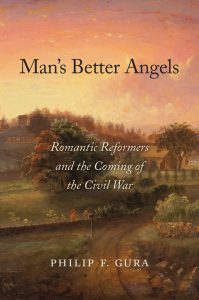
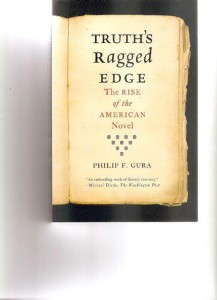
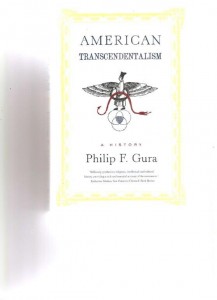
University Operator: (919) 962-2211 | © 2024 The University of North Carolina at Chapel Hill |